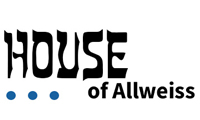When we first began to have problems in 1990 Larry Lapard was the partner responsible for Future Domain at Summit Partners in Boston. I had a good relationship with Larry, and often discussed business challenges with him. Larry was the first to tell me I needed to get rid of Tom and Al, and regain control of the company. Larry was very helpful, and in mid-1991 when I felt we needed Summit to exercise their options to get more capital into Future Domain Larry went to bat for us and got it done.
Unfortunately Larry left Summit in August of 1991. By then things had begun to look up for Future Domain, but our company was transferred to Greg Avis at the new Summit office in Menlo Park, CA. Greg’s team was mostly doing mezzanine financings. They would buy into companies in the bay area just before they were going public so most investments were a year or less. Our company was much earlier stage. Summit had been in Future Domain for close to two years. Greg called me and told me that he was a seller. He would like to get out of Future Domain as soon as possible. I explained to him that I was turning the company around and the results proved it, but he was not interested. He assigned one of his junior people to be on our board, Phil Black, with instructions to ask only one question, when were we going to sell or go public.
After 1991 Summit was more of a distraction than a help. Phil Black was actually not a bad board member. He would deliver Greg’s message every board meeting he attended but then not be disruptive, he actually tried to contribute. The problem was that Phil was very new and had little experience to bring to the table.
In mid 1992 Greg asked if I would mind if one of their investment bankers worked on finding a buyer. I said fine. I had a one year contract with Summit’s investment banker, and I felt that would keep Greg Avis off my back for the year, which it did not. We did end up talking to Intel and a few other companies, but they really were not interested and I questioned why Summit’s investment banker was wasting my time. In early 1994 Summit’s investment banker brought us a buyer, a company called Unitrode. They were serious, but the CEO of Unitrode was insistent that I continue with the company under an employment contract for a minimum of five years. I had made it clear to Summit that my goal was to retire from active management after a sale as soon as possible due to my health. I called Greg and reminded him of this. His only reaction was to inform me that if I worked for Unitrode then Summit was going to insist that they get 30% of my compensation package! I angrily informed him that he was not listening to me, and not to bother me with deals like this.
After the Unitrode fiasco Greg called and said they had a wonderful opportunity. Summit had invested in a company in San Diego named Systech Inc. and it had gone south. They had replaced the management team with an experienced turn around team led by Mark Fowler, and thought a merger between them and Future Domain would be a good idea. Patty and I went down to San Diego and meet Greg Avis and Phil Black there. We spent the day. Summit had put in about $5 million to keep this company afloat. The “turn around” artist was not having luck turning anything around. They were burning close to half a million dollars a month in cash. Sales of the company were heading only one way, lower. They proposed a merger where we would get nothing, and they would get everything. After the presentation Patty and I met privately with Greg. I asked him what he was thinking. By now we were very profitable and increasing sales by about 50% a year. Systech was a joke. Greg just kept saying he was a seller. I told him that I was not interested in anything less than a home run, and this deal would not even be a single. Our contract with his investment banker would be up in the middle of 1994, and I told him I was going to retain Greg Presson again. I never spoke with Greg again after that.
What eventually happened to Systech? Well as of 2015 it is still in business, still headed by Mark Fowler. It is not listed in Summit’s roster of successful investments (Future Domain is listed however). Systech became what is known in the Venture Capital business as “the walking dead” or “Zombie” companies. These are companies that do not fail, but also do not go public or merge. These are companies that continue to ask for more capital or support from the VC. The Venture firm gets nothing for the investment, it is worse than the company failing. That is what would have happened to Future Domain if Summit had its way. Instead, Future Domain was a Summit success, no thanks to the unwise console given me by Greg Avis.
